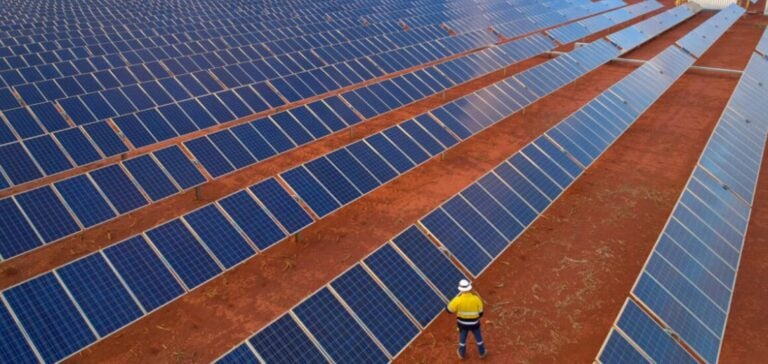The budget, described by Finance Minister Jim Chalmers as an investment in Australia ‘s ambitions to becomea renewable energy superpower. Allocating substantial funds for solar panels, essential minerals and emissions-reducing technologies. Chalmers asserted that this transformation is crucial to meeting the world’s growing demand for clean energy.
“We know that the global energy transformation represents a golden opportunity for Australia. If we stand back, the opportunities for a new generation of jobs and prosperity will elude us,” he told Parliament.
Natural Resources Still Crucial
Despite these new commitments, the Australian economy continues to benefit from soaring iron ore and coal prices. These highly polluting raw materials will remain a mainstay of the economy for years to come. Although the budget aims to balance this dependence with strategic green investments.
The “Made in Australia” Program
Inspired by the US Inflation Reduction Act, the “Made in Australia” program provides 13.9 billion euros in funding. It is earmarked for solar panels, low-carbon fuels, tax breaks for essential minerals and other priority areas. This program is designed to catalyze the growth of local high-tech industries and maximize the opportunities offered by renewable energies.
Reactions and outlook
Analysts and professionals in the energy sector hail this initiative as a bold step towards modernizing the country’s energy infrastructure. However, they warn of the logistical and financial challenges involved in such an ambitious transition.
Financial Impact and Investment Strategies
Minister Chalmers also announced a budget surplus of A$9 billion for the current fiscal year, thanks in part to rising commodity prices. However, for the 2024-2025 financial year, a deficit of A$28.3 billion is forecast, mainly due to massive investment in defense and energy infrastructure.
Strengthening Security and Diversifying the Economy
The government’s vision is clear: to strengthen energy security while diversifying the sources of revenue for the Australian economy. The integration of renewable energies aims not only to reduce carbon emissions, but also to create new jobs and stimulate technological innovation.
International commitments and cooperation
Australia is also looking to strengthen its international partnerships to support this energy transition. The budget provides for increased collaboration with strategic partners, aimed at exchanging technologies and attracting foreign investment in the renewable energy sector. In short, this budget marks a strategic transformation of the Australian economy, moving the country towards a sustainable energy future. Investment in renewable energy is not only a response to global demand, but also an opportunity for Australia to position itself as a leader in the clean energy sector. Challenges remain, but economic and environmental opportunities could well redefine the country’s future.






















